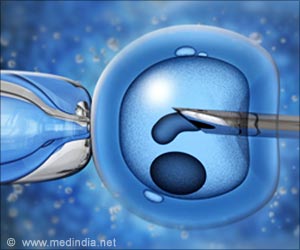Mouse embryos are contemplating their cellular fates in the earliest stages after fertilization, when the embryo has only two to four cells, discovered bioengineers at the University of California.

The findings reveal cellular activity that could provide insight into where normal developmental processes break down, leading to early miscarriages and birth defects.
The researchers discovered that a handful of genes are clearly signaling to each other at the two-cell and four-cell stage, which happens within days after an egg has been fertilized by sperm and before the embryo has implanted into the uterus. Among the identified genes are several genes belonging to the WNT signaling pathway, well-known for their role in cell-cell communications.
The prevailing view until now has been that mammalian embryos start differentiating into cell types after they have proliferated into large enough numbers to form subgroups. According to the co-authors Fernando Biase and Xiaoyi Cao, when the first cell fate decision is made is an open question. The first major task for an embryo is to decide which cells will begin forming the fetus, and which will form the placenta.
The research was funded by the National Institutes of Health (DP2OD007417) and the March of Dimes Foundation. The publications are "Cell fate inclination within 2-cell and 4-cell mouse embryos revealed by single-cell RNA sequencing", Genome Research, November 2014 and "Time-variant clustering model for understanding cell fate decisions", PNAS, November 2014.
Source-Eurekalert









